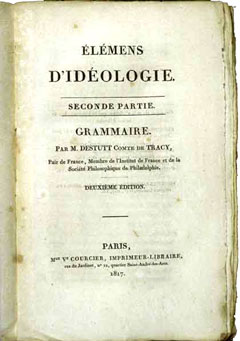“I’m not saying this for ideological reasons… I’m not trying to give an ideological speech… Ideologies are dead…” Precisions and declarations such as these are increasingly frequent and accepted and even valued as a sign of modernity and distancing oneself from an old, nostalgic and surpassed mentality.
This rejection of ideologies cannot be understood without putting it in a precise historical context: with the fall of the Soviet Union a model was lost that, despite its serious defects – from authoritarianism to the lack of freedom – represented an alternative to capitalism. This fall came about as a result of the internal contradictions of a closed system, but the flag-bearers of the free-market rushed to present it as the triumph of their world vision. To this first lie was added another: the proclamation of the end, not only of communism, the ideology on which the Soviet model was based, but of all ideologies. However, liberalism is also an ideology – disguised and founded on the cult of money and profit at all costs.
To maintain all this manipulation, a campaign of permanent demonization and degradation was launched: ‘Ideologies are toxic, rigid and intolerant and in their name terrible atrocities and persecutions have been committed. It was necessary to overcome this old form and replace it with a pragmatic, more flexible attitude capable of adapting to a world in continuous and rapid change.’
Without doubt tremendous violence has been committed and justified in the name of many ideologies, but it’s also true that ideology in itself does not automatically imply these nefarious consequences: if we consider ideology as a vision of the world, a set of principles, ideals and values, an image of the future to strive for, a direction that helps us to find coherence between thoughts, feelings and actions, it can therefore become a great strength that can nourish and sustain the greatest aspirations of human beings. Certainly it can also lead to destructions and atrocities, but that depends less on their general nature than their content and the methodology of each particular ideology. The old and simple example of the knife can be used in this case: it can be used for killing or for slicing bread. The knife in itself is neither good nor evil: it’s an instrument at the service of human intentions, just like an ideology can be.
Without a clear direction and profound values that orientate action, a much vaunted pragmatism will triumph. And that inevitably leads to the search for easy success, taking deviations, avoiding uncomfortable and unpopular truths, in other words, acting in contradiction and changing position according to how the wind blows.
So it is necessary to recover the true meaning of the term ‘ideology’ – emptied of meaning and poisoned by such degradation – and make a choice between coherence beyond immediate results in the name of something that doesn’t yet exist but that can be achieved, and short-term actions that are dictated by the relationship of forces and the convenience of the present moment.










